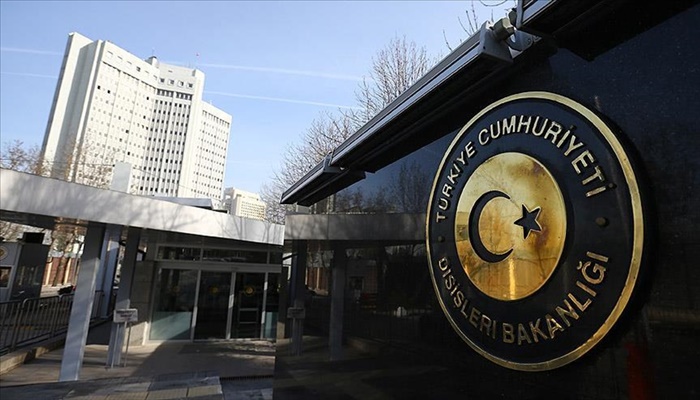The Turkish Foreign Ministry issued a blistering response to UN High Commissioner for Human Rights Zeid Ra’ad al-Hussein after his office released a report on Tuesday calling on Ankara to immediately lift an ongoing state of emergency, accusing him of relegating the UN body under his administration into the position of collaborating with terrorist organizations.
“This person, who is the head of an international body bearing an unquestionable global importance, has unfortunately relegated the said UN body under his administration into a position of a collaborator of terrorist organizations. We condemn this situation. We are also saddened because of the damage inflicted on this universal organization,” said a written statement issued by the Turkish Foreign Ministry later in the day.
The report, published by the Office of the United Nations High Commissioner for Human Rights on Tuesday, recommended that Turkey promptly end its state of emergency, restore the normal functioning of its institutions and revise and repeal all legislation that is not compliant with Turkey’s international human rights obligations, including its state of emergency decrees. It also stressed the need to ensure independent, individualized reviews and compensation for victims of arbitrary detentions and dismissals.
“The said text has no meaning, as it completely ignores the severe and multiple terrorist threats faced by Turkey, particularly the effects on the protection of human rights of the July 2016 coup attempt that targeted the survival of our country and the democratic life of our nation,” the written statement issued by Turkish Foreign Ministry said in response.
“As it has become obvious from his previous statements, the High Commissioner, who signed this text, has lost his objectivity and impartiality on issues concerning Turkey and he has developed prejudices against our country. The last text that he published contains unfounded allegations matching up perfectly with the propaganda efforts of terrorist organizations. This is an unacceptable situation,” it read.
The Foreign Ministry also accused UN High Commissioner for Human Rights al-Hussein of allegedly not accepting invitations to visit Turkey and of not submitting any request to visit Turkey in preparation for his latest text. “He has prepared it in cooperation with terror-affiliated circles. His claim of having no access to Turkey is baseless,” the statement said.
“This text constitutes a danger for the whole human rights system due to the non-objective assessments it contains. Turkey maintains its determination to protect human rights, to promote standards to the most advanced levels, and to cooperate with international organizations including the UN in these matters,” the Foreign Ministry claimed in its statement.
The UN report — which covered the period from Jan. 1 to Dec. 31, 2017 — warns that the state of emergency has facilitated the deterioration of human rights and the erosion of the rule of law in Turkey and may “have long-lasting implications on the institutional and socio-economic fabric of Turkey.”
Turkey survived a coup attempt on July 15, 2016 that killed 249 people. Immediately after the putsch, the Justice and Development Party (AKP) government along with President Recep Tayyip Erdoğan pinned the blame on the Gülen movement.
Fethullah Gülen, who inspired the movement, strongly denied having any role in the failed coup and called for an international investigation into it, but President Erdoğan — calling the coup attempt “a gift from God” — and the government initiated a widespread purge aimed at cleansing sympathizers of the movement from within state institutions, dehumanizing its popular figures and putting them in custody.
Turkey has suspended or dismissed more than 150,000 judges, teachers, police and other civil servants since July 2016. Turkey’s interior minister announced on December 12, 2017 that 55,665 people have been arrested.
Turkey’s state-run Anadolu news agency reported on March 15 that at least 402,000 people have been the subject of legal proceedings initiated by the Turkish government over alleged links to the Gülen movement.
A total of 48,305 people were arrested by courts across Turkey in 2017 over their alleged links to the Gülen movement, Interior Minister Süleyman Soylu said on Dec. 2, 2017. “The number of detentions is nearly three times higher,” Soylu told a security meeting in İstanbul and claimed that “even these figures are not enough to reveal the severity of the issue.”
(Stockholm Center for Freedom [SCF] with Turkish Minute)

